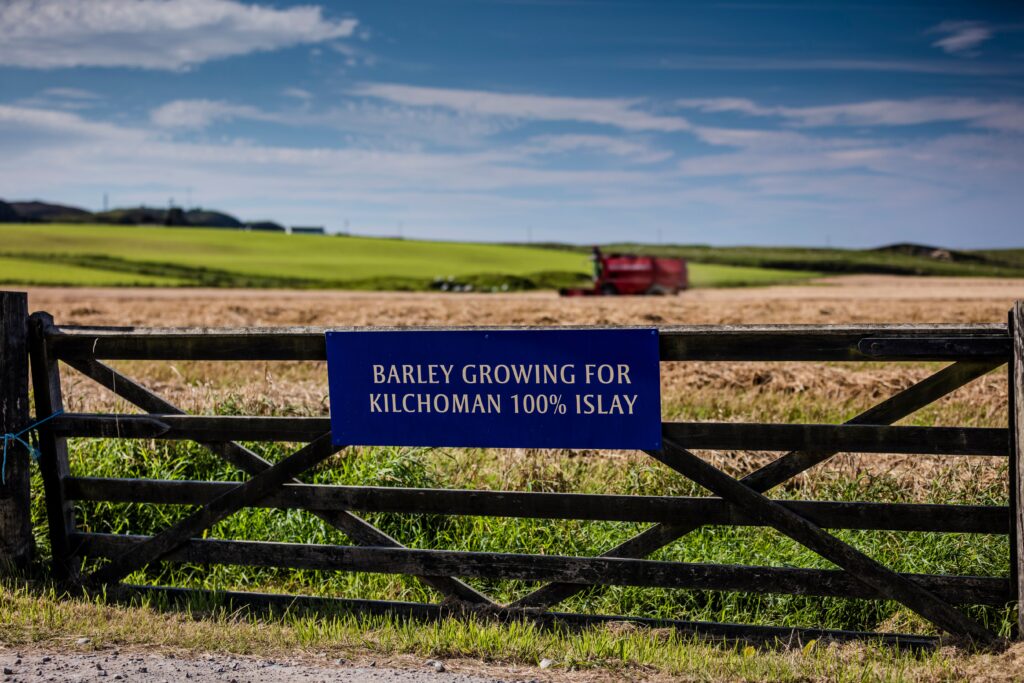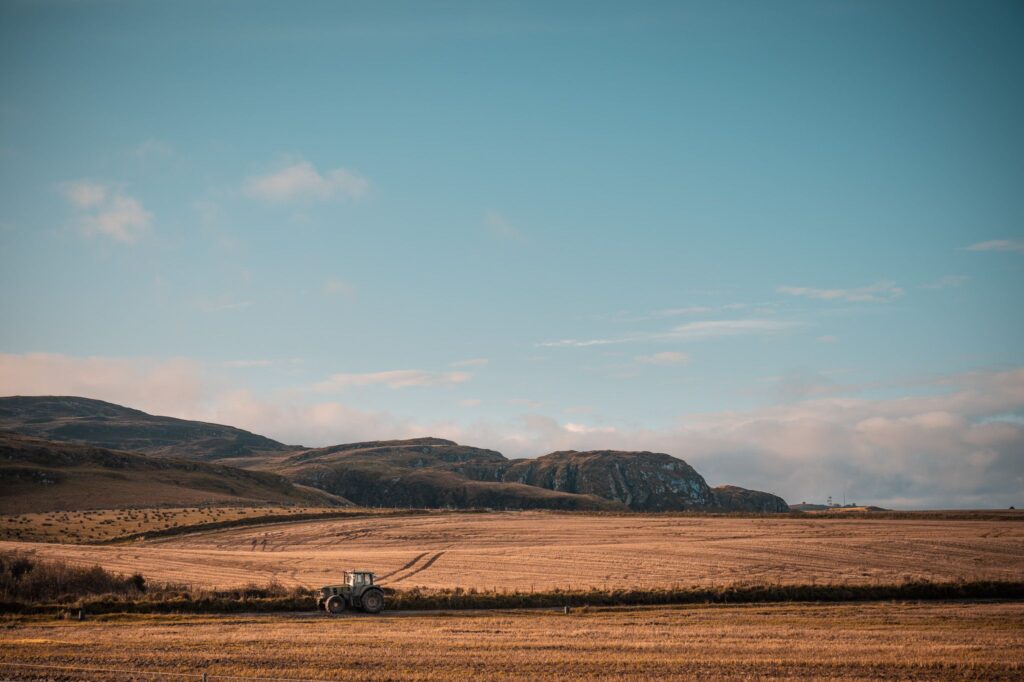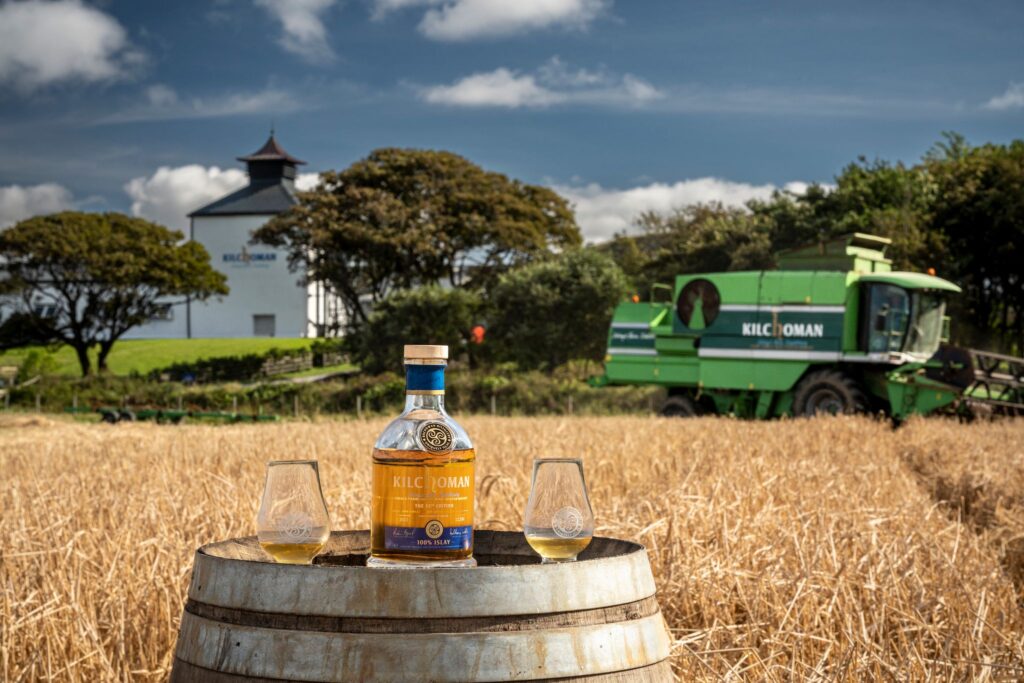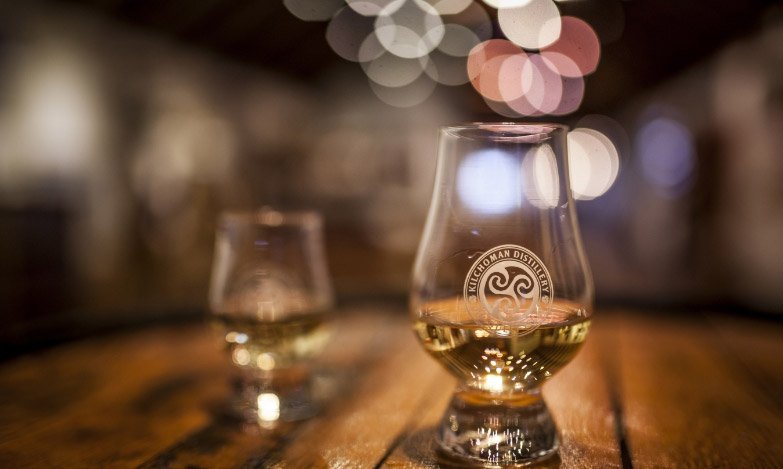Featured
Behind the Scenes at Kilchoman: Barley
February 16, 2024Barley is a fundamental ingredient when making single malt scotch whisky but at Kilchoman the barley is much more than just an ingredient, it’s integral to our whole philosophy. As a farm distillery, we are one of the few distilleries in Scotland to grow barley on-site, and one of only a handful that completes the entire whisky-making process on-site. This gives us a unique insight into the challenges and successes that come with growing barley – especially on Islay!
The first step is picking the variety. Sounds simple? Not quite. The barley variety can have a serious domino effect on the rest of the production process. If the wrong variety is selected, it might not perform as well, reducing your yearly yield. We always choose a good, hearty variety as we are growing it on Islay after all! In the past, we have used varieties such as Concerto, Diablo, Publican, Sassy, Optic, Octavia, Planet, and Laurette. All perform differently depending on the weather, the condition of the soil, or even the wildlife that lives amongst it. Compared to barley grown on the mainland, which is primarily used for commercial maltings, our yield is slightly lower. On Islay, we are situated right next to the Gulf Stream, which helps to regulate our temperature and keep the overall climate warmer. However, it does bring additional wind and rain, resulting in a more challenging environment to grow barley than you would experience elsewhere in Scotland. We initially focused solely on how much yield it can produce but over the years have come to realise the impact the different varieties also have on the character of the spirit.

It is not all as bad as it seems though! Rockside Farm, upon which the distillery is built, also has some of the most fertile land on Islay and allows us space for 230 acres worth of good barley growing ground. We don’t sow all of those acres yearly, as it is important to allow the fields to rest in between crops to maximise our yields overall, but it is still a decent portion of land for a 2000-acre farm on an island covered in peat bogs! As well as this, growing our own barley allows us a massive insight into the deeper role barley plays in the production. Growing different barley varieties in fields side by side has enabled us to directly compare the impact they have on the distilled spirit. It also allows us to further experiment with peating levels or yeast varieties and see the impact this has on the spirit’s flavour profile from each of the different barley varieties.

For centuries, the area around Rockside Farm was always some of the most sought-after land due to farming being the most prominent industry on the island. Traditionally, barley would have been grown for use in the industry, with whisky production being a by-product of this, but that soon got flipped on its head. When the whisky industry started to gain popularity in the early 1900s, and distilleries started to increase capacity, Islay could no longer grow all the barley required to supply the distilleries, so the barley had to be sourced out with the island to keep up with demand, and with-it went traditional farm distilling.
One of Anthonys’ goals when starting Kilchoman was to take whisky back to its original grassroots, and growing our own barley on the farm was vital to achieving this. Despite the odds being against us and dealing with struggles from the combine breaking down mid-harvest to severe flooding or the lack of rain altogether, we love the unpredictable Islay weather! We do not grow barley because it is easy or to produce a lot of whisky. We do it to keep whisky rooted to the original connection to the island and its heritage. We are proud to be one of the only distilleries in Scotland to produce a Single Farm Single Malt and the only one in the world to be 100% Islay.

READ NEXT
Featured
Kilchoman Fèis Day 2025
The countdown to Fèis Ìle 2025 is well underway, and we can’t wait to welcome you for another fantastic celebration on Thursday, 29th May 2025! We’ve got the drams ready for our masterclasses and open tastings, alongside an exciting line-up of tours, activities, live music, and entertainment throughout the day.…
April 1, 2025

